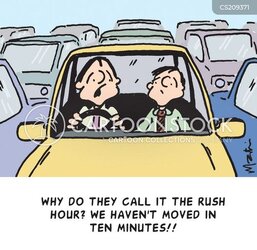presta
Legendary Member
Someone's just posted a tweet of a congested road saying that if half the people were to walk or cycle there wouldn't be a traffic jam. Sounds reasonable on the face of it, but then the penny dropped....
We've known for decades that when you build more roads the traffic just grows until the congestion returns, so why won't the remaining drivers just drive more when the other half go? When congestion is the only thing limiting demand for motor transport, congestion is what you get, and halving the traffic is just the opposite side of the coin from doubling the number of roads.
I still think that what's needed is policies to reduce the total number of vehicle miles by forcing people out of their cars, and then leave them to decide for themselves what their alternative is.
We've known for decades that when you build more roads the traffic just grows until the congestion returns, so why won't the remaining drivers just drive more when the other half go? When congestion is the only thing limiting demand for motor transport, congestion is what you get, and halving the traffic is just the opposite side of the coin from doubling the number of roads.
I still think that what's needed is policies to reduce the total number of vehicle miles by forcing people out of their cars, and then leave them to decide for themselves what their alternative is.


